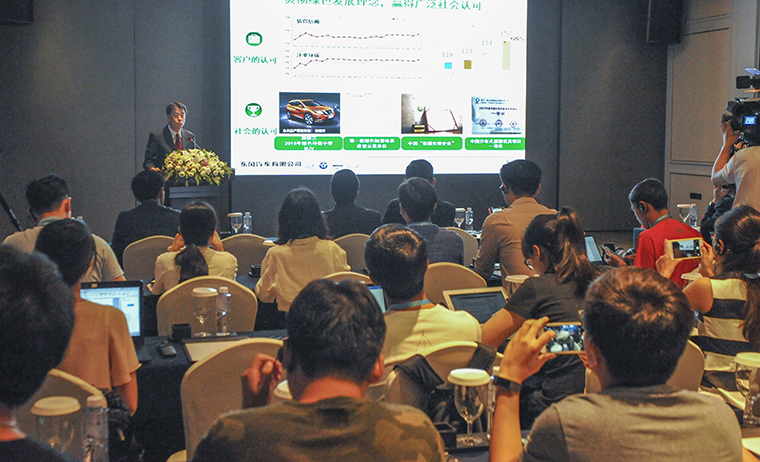
Dongfeng Motor Green Plan includes 20 electrified models by 2022
This builds on DFL’s history of applying green standards to achieve the goals of “most sustainable brand” in the automotive industry. From 2010 to 2017, DFL’s energy consumption, pollutant emissions, single car fuel consumption and solid waste utilization rates all met, or exceeded, national green policy objectives.
“Since its founding 15 years ago, DFL has delivered high-quality automotive products to our customers,” said Uchida Makoto, Nissan global senior vice president and DFL president. “We will continue to do so in this period of industry change, understanding that excellence in the Green area is a key factor to successfully navigate this change. Our green development will underpin operations throughout the value chain.”
DFL plans to introduce 20 electrified (EV + e-POWER) models under its four brands by 2022, with Nissan e-Power technology available on core models. By 2022, 30% of DFL sales will be EV and e-POWER products. The company plans to localize 100% of key e-components within three years as Nissan technologies, the QA system and APW production mode are introduced.
As part of its green production efforts, energy-saving methods will be applied to operations, and three solar power generation parks will be established, with the goal of achieving a 20% reduction in energy consumption and a CO2 emission reduction equivalent to the absorption of 200,000 mu of forest (accumulated to 2022).
Additionally, intelligent water systems will contribute to a 35% reduction in water usage. And to reduce environmental pollutants, an investment of RMB 1 billion will be made to upgrade 27 paint shops in Guangzhou, Zhengzhou, Xiangyang and Dalian, reducing VOC (volatile organic compounds) emissions by 50%.
Further, DFL plans to introduce advanced battery regeneration technology to lower environmental pollution, increase vehicle recycling value and reduce waste. Commercial energy storage will put recycled batteries to use, providing a stable power supply for local communities and industries once energy users reach peak electricity consumption.
“China’s automotive industry is facing a period of strategic opportunity,” said Uchida. “By developing new energy vehicles and managing the process in a green and sustainable manner, DFL is seizing the opportunity.”






